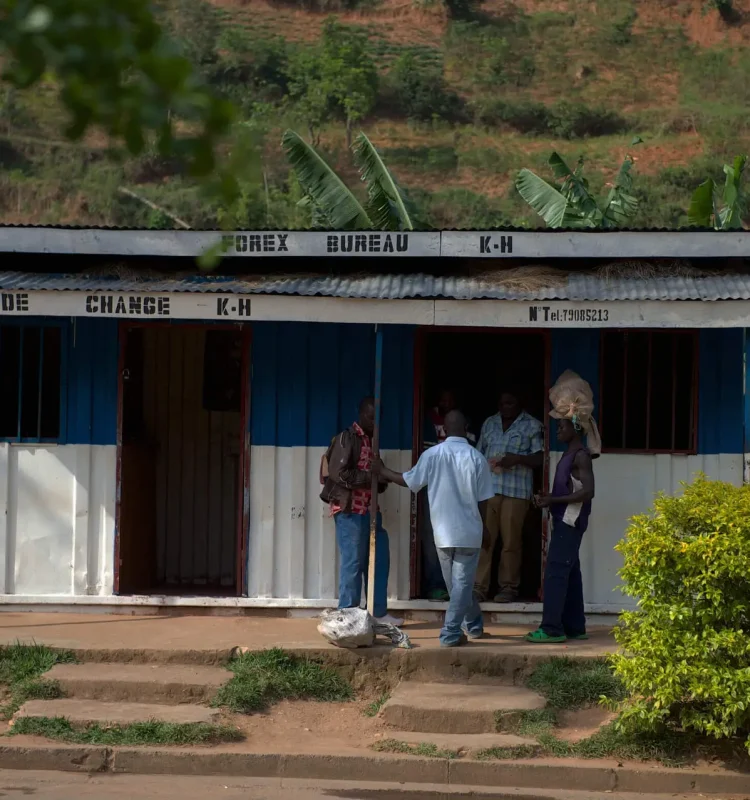Project Brief
Standards Quality Infrastructure (SQI) and Sanitary and Phytosanitary Measures (SPS)

Implementation Partners
East African Community (EAC) Secretariat, East African Standards Liaison Office, National Standards Bureaux (NSBs), National SPS Competent Authorities

Implementation Period
2018 - 2023

Project Participants
National Standards Bureaux (NSBs) in the East African Community (EAC) and the Horn of Africa, National and Regional SPS Competent Authorities, Government Ministries and regulatory agencies, Manufacturers/Producers, Farmers, Importers, Exporters, and private sector business member organisations.

Project Rationale
Standards and SPS are technical measures that can either enhance trade or become barriers to it. The TMA SQI-SPS programme implements interventions covering Standards, Technical Regulations, and Sanitary and Phytosanitary Measures. Participating in global trade is increasingly critical for the economic growth of developing countries in Africa.
On one hand, this requires working on the supply side, enabling enterprises to produce and supply quality, safe, and cost-effective goods with high market potential in the quantities and consistency demanded by markets. On the other hand, there is a need to show evidence of market conformity by establishing national infrastructure for proof of compliance with relevant standards, technical regulations, and SPS measures. TMA is actively involved in all these aspects of technical measures affecting trade.
A Quality Infrastructure is a system comprising public and private organizations contributing to policy objectives and practices that support and enhance the quality, safety, and environmental soundness of goods, services, and processes. The TMA SQI programme aims to ensure that technical regulations, standards, and conformity assessment procedures applied by importing countries do not create obstacles to trade. This focuses on two key challenges: (i) Quality Infrastructure challenges affecting governance frameworks, institutional capabilities, and service delivery; and (ii) weak private sector capacities to meet standards, including low awareness, inadequate knowledge and skills for SMEs, and high upgrading/maintenance costs for QI institutions.
The objective of the TMA SPS programme is to protect human, animal, and plant life and health while avoiding barriers to trade. The project addresses (i) weak SPS compliance infrastructure, including governance frameworks, institutional capabilities, and inspection and approval procedures; and (ii) private sector inability to meet SPS requirements due to inadequate knowledge and skills, high costs of controlling and managing SPS risks, and complex inspection and approval procedures.
Countries require imported agricultural products to comply with their national sanitary and phytosanitary regulations. These aim to protect human, animal, or plant life or health from pests and diseases brought in by imported products. SPS regulations, particularly those preventing animal- or plant-borne diseases, can be linked to the prevalence of specific pests or diseases and may be applied more rigorously to imports from countries where they are common.
The rules for applying SPS measures are contained in the World Trade Organisation’s Agreement on the Application of Sanitary and Phytosanitary Measures (WTO SPS Agreement). These rules are similar to those for mandatory product standards, with some differences.
-
Support to Regional Economic Communities (EAC, COMESA, IGAD)
- Develop regional frameworks for standards, technical regulations, and conformity assessment procedures.
- Develop frameworks for the application of Sanitary & Phytosanitary (SPS) measures.
- Promote active participation of the private sector and civil society in regional SQI/SPS programmes.
-
Support to governments to meet international & regional obligations on technical measures to trade
- Update QI & SPS laws and regulations.
- Update QI & SPS policies and strategies.
- Strengthen technical and managerial capabilities of QI & SPS institutions and service delivery mechanisms.
-
Private sector support to implement compliance programmes
- Facilitate access to information and training on TBT & SPS requirements for traded goods.
- Facilitate improved value chains that meet trade standards and manage SPS risks.
- Support governance structures for inclusiveness and integration into global value chains.
-
Support to consumer organizations
- Provide consumer information and education on the quality and safety of goods.
- Communicate on non-conforming products and safety.
- Create consumer demand for safety and quality.
-
Implementation approach
- Direct TMA technical assistance from the regional team.
- Collaborative efforts with development partners.
- Share relevant information on SQI & SPS programmes in the region.
- Initiate and implement donor-supported SQI/SPS programmes and partner with relevant initiatives.
Implementation Strategy
As of June 30, 2020, the SQI project supported EAC partner states in applying a harmonized technical regulations regime through the development of the EAC Technical Regulations Framework for foods and cosmetics. Implemented in 2019/20, the process included national consultations and technical working group sessions organized by the EAC Secretariat.
The harmonized framework will enable increased regional trade in these high-demand products by removing previous barriers related to product characteristics, production methods, and administrative provisions. Upon adoption, it will reduce traders’ compliance costs by eliminating multiple, conflicting requirements across partner states.
The programme also supported the harmonization of 26 standards for priority value chains in the region, including sugar and sugar products, cosmetics, apiaries, and textiles.
In partnership with EAC and COMESA, TMA is implementing the “Prioritizing SPS Investments for Market Access” (P-IMA) project. Launched in November 2019 and running for 18 months, the project helps states prioritize SPS investment options through collaborative strategies to mitigate SPS risks and strengthen capacities of SPS authorities and policy frameworks.

